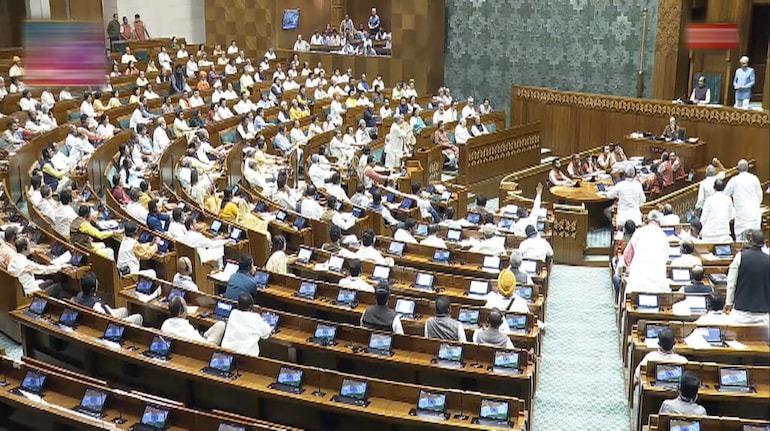
A fierce political fight seems inevitable in Parliament as the BJP-led Central government will introduce the Waqf (Amendment) Bill, 2024 in Lok Sabha today. This action has provoked strong discontentment among the INDIA bloc, which has committed to collectively oppose the legislation on the grounds that it is unconstitutional and has ulterior motives.
The bill sponsored by Kiren Rijiju, the minister of minority affairs, contains new changes and is to be discussed for a total of eight hours, four hours forty minutes for the NDA, and three hours twenty minutes for the opposition.
Despite fierce resistance from the whole INDIA alliance led by Congress, the bill is backed by critical NDA partners, the Telugu Desam Party (TDP) and Janata Dal (United).
“This bill is fundamentally against Constitutional values. We’re going to oppose it,” Congress General Secretary K. C. Venugopal said while at ANI on Tuesday.
So, What Exactly Is a Waqf Property? In a Waqf Property, its owner, who is a pious Muslim, verbally gives away the property for a socially beneficial project. Waqf has its origins in the Arabic term meaning ‘endowment. Waqf property is regarded as pious in nature and the upholding of such properties comes under the Waqf Act of 1995, which the current amendment tries to change.
The Bills Journey So Far One of the more unprecedented pieces of legislation, the Waqf Amendment Bill, was first proposed in 2023, only to slow down due to resistance and was sent for further examination to a Joint Parliamentary Committee JPC presided over by BJP MP Jagadambika Pal. The JPC Report was completed on February 13 2024 and shortly after was adopted by the Union Cabinet. However, scandal arose when opposition members of Parliament accused the government of, in essence:
Now Accepting Preface Their dissent notes were excluded from the report. Every single one of 44 proposed changes was turned down. Only fourteen of amendments suggested by NDAs were adopted.
Five Key Politics Of Provisions That Antagonized The Public Non Muslim Participation Within Waqf Boards: The Bill enforces the inclusion of non Muslims in both state waqf boards and Central Waqf Council. Many believe that this can result to underrepresentation of Muslims in religious endowments.
The Authority Responsible for Dispute Resolution Has Changed:Currently, conflicts regarding whether a property is Waqf or government are resolved by a Waqf Tribunal. The bill suggests a senior state government officer will make the final determination, which raises questions regarding executive interference.
Changes within Waqf Tribunal Composition: The composition of the proposed tribunal will include a district judge and an officer of joint secretary level rank. Appeals can be made to the High Court, but once again, the configuration of the tribunal is what raised eyebrows.
Registration of Waqf Properties with a Central Authority Becomes Compulsory: All Waqf properties must now be registered on a central portal within six months of the law’s operationalization in a bid to bring transparency while raising eyebrows about central overreach.
Removal of the Clause 'Waqf by User': A law already exists declaring land used, by Muslim communities for various religious assignments, Waqf without formal declaration of ownership. The Bill seeks to assuage this clause and many think it changes a long standing right and control over the property.
Dispelling Popular Misconceptions About the Bill Myths Identity 1: The bill abrogates waqf properties. The truth is: Only properties that have been improperly considered as Waqf are eligible for re-evaluation, and will not be destroyed. Myth 2: There will be no surveys done. The truth is: Surveys of Waqf properties will still happen. Myth 3: Waqf Boards will be dominated by non-muslims.
Non Muslims will be part of the inclusion, but they will not account for a majority. Myth 4: The government will take over land owned by Muslims. Fact: There is no clause that permits land acquisition from singular Muslims. Myth 5: Waqf Properties can be taken over. Facts: A District Collector may adjudicate disputes only and may not take possession of valid Waqf land. Considering the Bill will be debated in the Lok Sabha, the focus of not only the debate but the result of it will be vivid due to its effecting nature, not just Waqf governance, but more politic than that.
Read More: When Cricket Entered the Courtroom Why Justice Surya Kant Referenced Jasprit Bumrah

 Share
Share



